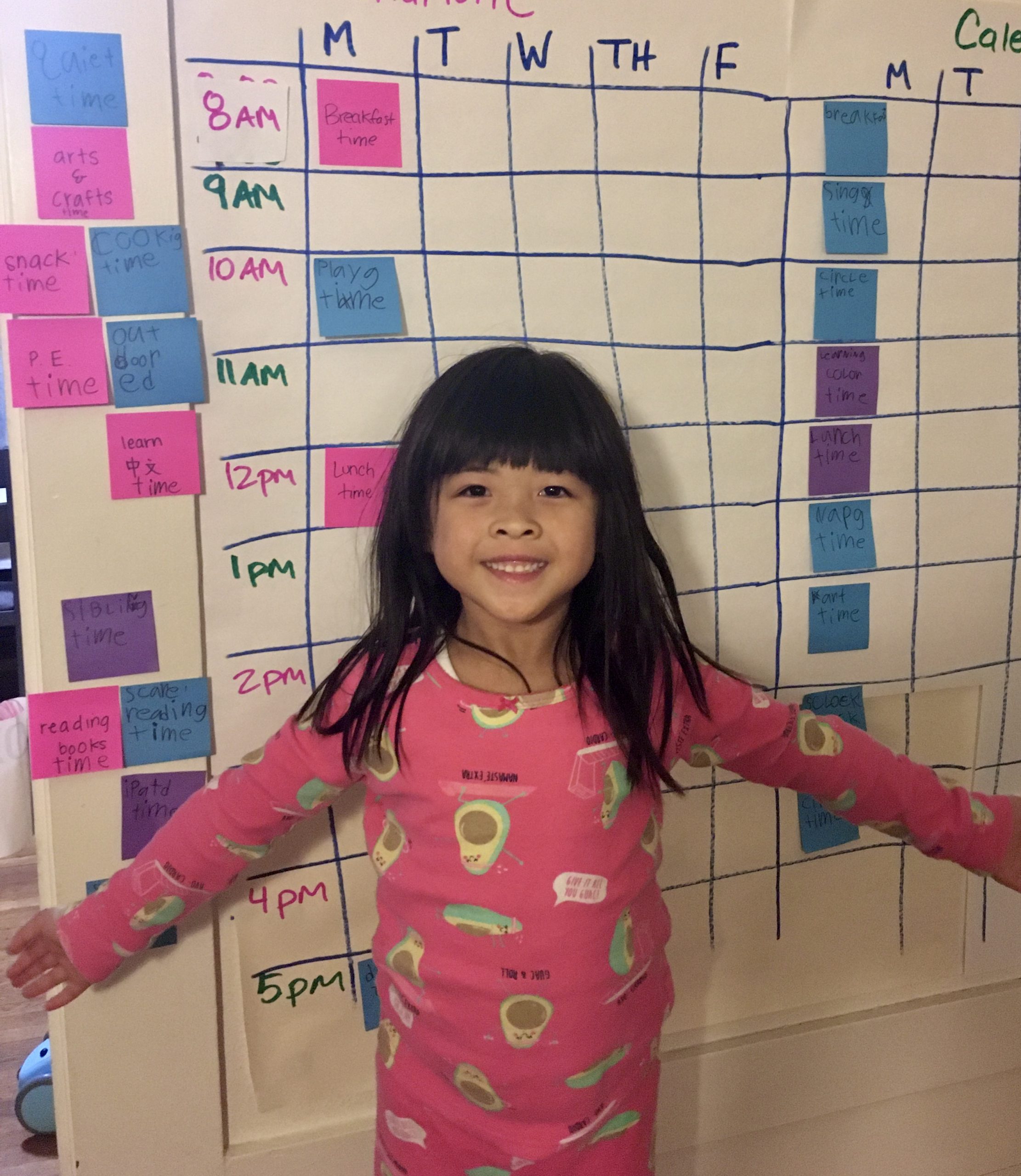Coro Trainers — and parents — Cliff Yee, Masharika Prejean Maddison, and Laney Whitcanack share transferable leadership tips for everyone doing double duty working from home with kids.
As we start working from home, many of us are also suddenly thrust into newly expanded roles of teacher, principal, nurse, and recreational specialist for the next several weeks. Talk about a new experience that may involve leaning into discomfort—it doesn’t get more Coro!
The question we’re wrestling with is, How can we negotiate our time and attend to our children’s real-time needs as we also honor the work commitments on our plates?
We want to share how some of our team is using Coro leadership competencies to support us in our newly expanded roles at home.
Let’s start with some questions to consider with your family, to help set expectations and develop a shared sense of adventure:
- How do we want to approach this new, unexpected time together?
- By the time the advisory period concludes, what do we want to have achieved together?
- What types of decisions do we anticipate needing to make?
- How do we want to make decisions together?
One Coro resource that jumps out as a great way to get started in this new adventure is the awesome tool, Outcomes, Agenda, Roles and Rules: OARRs. Created by The Grove and Coro alum David Sibbett, OARRs is something that you can easily use at home.
While you may use it for your team or department meetings, and for projects and programs at work, now’s the time to adapt it for use with your family! Based on the principle that misplaced assumptions are what leads to hard times for groups, OARRs is an excellent way to make things clear for the entire family.
Identify Outcomes: What are the “outcomes” for your time at home together?
One thing you can think about during this new project of leading your family at home each day: what goals do you want to set each day? This can be a fluid process that still allows for routine. Think about various learning styles, and particularly how your child(ren) best engages with learning.
What’s the number one thing you want to work on (and learn) together, as a family? Have you often wished for more quality time during your fast paced daily routines? Now (possibly) you have it. Schedule intentional family time!
Don’t forget: ask your children what they want to learn and engage in that activity together. Coro Trainer Cliff Yee has been setting jump rope goals (and jumping!) with his daughter.
Set an Agenda: What is your schedule for each day and how can you make it visible?
Create a spreadsheet or a visual somewhere all can easily see. It can be as simple as paper taped to a wall in the kitchen. Brightly colored post-its and markers are always fun. Each day, schedule some activities that will be familiar, based on your child’s daily routine at school or day care:
- Reading
- Outdoors/Nature
- Arts and Crafts
- Dance and Music
- Cooking
- Sibling Time
- Family Time
- Electronics/Digital Learning
You may consider making a mystery box together and adding random activities. Stumped for what to do? Pick a piece of paper from the mystery box and try something new!
Identify Roles and Rules
As we mentioned in our previous post on leading during a pandemic, communication is key. Tell your kids as much as is appropriate (given their age(s) and development) about why you’re making these decisions. We all have different learning styles and it’s important to cater to each child’s strengths.
A related tip: Make the implicit explicit. For example, remind kids that many of us are staying home so that we can help keep others safe from infection. Create a sense of shared responsibility: we’re all in this together.
Getting Pushback? Offer some Coro reframes
What they say: I’m so bored. How you respond: We have a special moment to spend more time together. What’s on your schedule? Have you tried XYZ activity?
What they say: Will I/we get sick? [or] We aren’t at risk, why do we have to stay home? How you respond: We all must do our part to make sure we don’t get ourselves or other people sick.
What they say: At my school, we do this… How you respond: Your school is one of many places doing things one of many ways. How could we take what you like best about your school and bring some of that experience into our home?
What they say: When will this be over? How you respond: It will be over when there are more people at the end of the day who are healthier than are sick. This might take some time, and I promise to share updates with you.
Hang in there
At times, this will feel like driving from San Francisco to New York with your kiddos in the car and no rest stop in sight. Remember self-compassion. You will have to be patient, take breaks (and breaths), and balance the needs of everyone on the journey.
Reiterate that you want to give each other constructive feedback as you test out new ideas and approaches. Remind yourself—and your kids—of your outcomes and plans.
You’ve got this!
